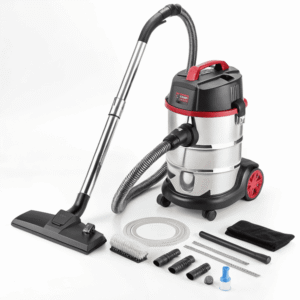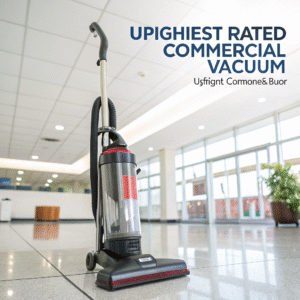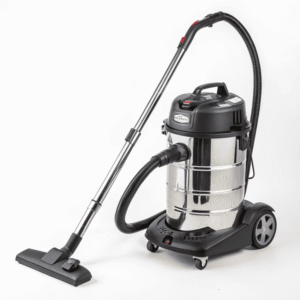Spilvac? Does This Industrial Vacuum Make A Difference?
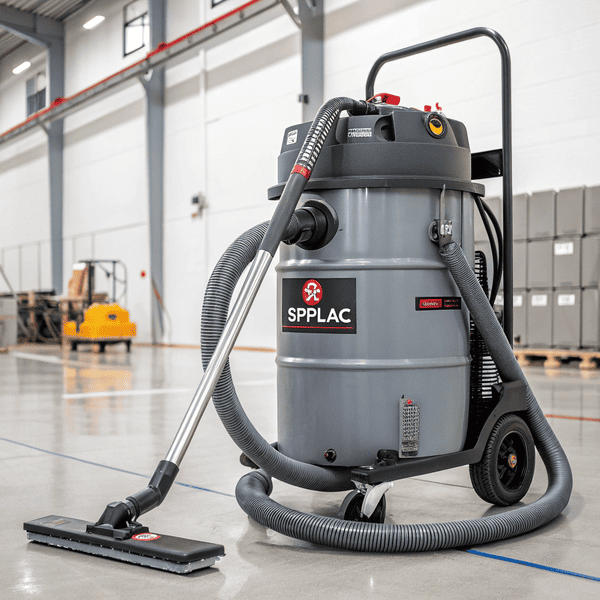
Many people wonder if brand names like Many people wonder if brand names like Spilvac are worth the hype. When you need to clean up tough messes, choosing the best vacuum[^1] makes a big difference.
[^1]: Discover expert reviews and comparisons to find the most effective vacuum for your cleaning needs.
are worth the hype. When you need to clean up tough messes, choosing the best vacuum makes a big difference.
Spilvac is known for industrial vacuum cleaners built for powerful suction, durability, and versatility. Industrial vacuums like Spilvac cost more but can handle bigger, tougher jobs than regular vacuums.
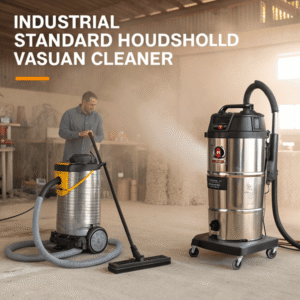
I remember my first time seeing a Spilvac in action during a factory clean-up. It picked up chunks of wood, metal filings, and thick, sticky spills without clogging once. That made me realize why choosing the right vacuum matters for serious jobs. If you plan on cleaning up more than dust or pet hair, learning about industrial vacuums is key to making a smart buy.
Are industrial vacuums worth it?
People worry about spending more for an industrial vacuum. Is it really necessary, and will you see the benefits?
Industrial vacuums are worth the investment for tough jobs, frequent large messes, or commercial settings. They save time, last longer, and work better on debris most home vacuums can’t handle.

When I started my CNC trading business, cleaning was one of the biggest problems. Cheap vacuums broke down after a few weeks. Then I bought an industrial vacuum and everything changed—it Cheap vacuums broke down after a few weeks. Then I bought an industrial vacuum[^1] and everything changed—it cleaned up metal dust, plastic chips, and spilled fluids without overheating or clogging.
[^1]: Explore this link to understand how industrial vacuums can enhance cleaning efficiency and durability for various tasks.
, plastic chips, and spilled fluids without overheating or clogging. It was loud but finished cleaning faster and handled every mess. If you have a workshop, garage, or busy industrial site, investing in a tough vacuum saves trouble in the long run. You spend more up front, but you save money on repairs, time, and replacements. For regular household cleaning, though, it might be more than you need.
| Benefit | Industrial Vacuum | Regular Vacuum |
|---|---|---|
| Cleaning Power | Very strong | Moderate |
| Durability | Designed for heavy use | Basic daily use |
| Debris Handling | Large debris, liquids | Dust, small crumbs |
| Cost Over Time | Saves long-term | Needs frequent replacement |
What is the best builder's vacuum cleaner?
Builders must deal with plaster, nails, dust, and more. What vacuum cleaner is up for the challenge on worksites?
The best builder’s vacuum is tough, powerful, and quick to maintain—brands like Spilvac, Makita, and Festool lead. Spilvac stands out for handling fine dust, sharp debris, and both wet and dry messes.
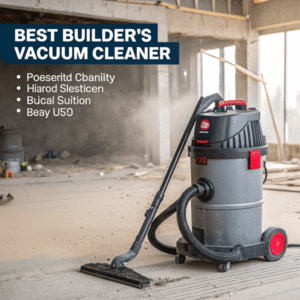
I tried several vacuums while working on construction projects. Spilvac always handled everything: I tried several vacuums while working on construction projects. Spilvac[^1] always handled everything: drywall dust, sawdust, screws, and even spilled plaster
[^1]: Discover how Spilvac excels in handling tough construction debris, making your cleanup process efficient and hassle-free.
, sawdust, screws, and even spilled plaster. Its stainless steel parts didn’t rust and the filter lasted through weeks of heavy use. Festool vacuums are favorites for woodworkers and site crews—they keep dust out of tools and workspace. Makita makes compact vacuums with good suction for quick jobs. Builders need vacuums they don’t have to baby, ones that survive rough use and constant moving. Heavy wheels, long hoses, and robust motors matter. If you clean up daily, look for a model that rates highly for durability and easy filter cleaning.
| Brand | Best Feature | Use Case | Noted Drawback |
|---|---|---|---|
| Spilvac | Wet/dry, fine dust | Construction, workshops | Loud operation |
| Festool | Tool integration | Woodworking, site clean-up | Higher price |
| Makita | Portable | Quick job sites, repairs | Smaller tank |
| DeWalt | Rugged, reliable | Big debris, outdoor jobs | Bulky size |
What is the difference between a regular vacuum and an industrial vacuum?
The market offers many choices. Are regular vacuums really that different from industrial ones, and does it matter for most cleaning jobs?
Industrial vacuums offer higher suction, stronger parts, and can clean up larger or hazardous debris. Regular vacuums focus on comfort and lighter home messes, like dust and hair.
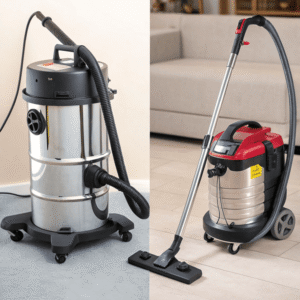
I’ve owned both types. Industrial vacuums are made for workshops, factories, and building sites—places where messes can include liquids, metals, powders, and even chemicals. They run for hours without breaking down and don’t mind They run for hours without breaking down and don’t mind sucking up big, sharp, or wet items. Regular vacuums break if you try that—they’re made for carpets, upholstery, and light dirt. The design focuses on lightweight, quiet operation[^1], and easy storage
[^1]: Discover how lightweight and quiet vacuums enhance cleaning efficiency and user experience.
. Regular vacuums break if you try that—they’re made for carpets, upholstery, and light dirt. The design focuses on lightweight, quiet operation, and easy storage. If you clean mostly home surfaces, a standard vacuum makes sense. For big messes or dangerous dust, only industrial models can do the job safely and efficiently.
| Feature | Regular Vacuum | Industrial Vacuum |
|---|---|---|
| Suction Power | Medium | High |
| Motor Strength | Short duty cycles | Long duty cycles |
| Filter Quality | Standard | Industrial HEPA |
| Debris Capacity | Small | Large |
| Noise Level | Quiet | Loud |
| Weight/Size | Light/Compact | Heavy/Rugged |
Conclusion
Choosing Spilvac or another industrial vacuum pays off for big cleaning challenges. Match the vacuum type to your mess for better results and fewer headaches.

